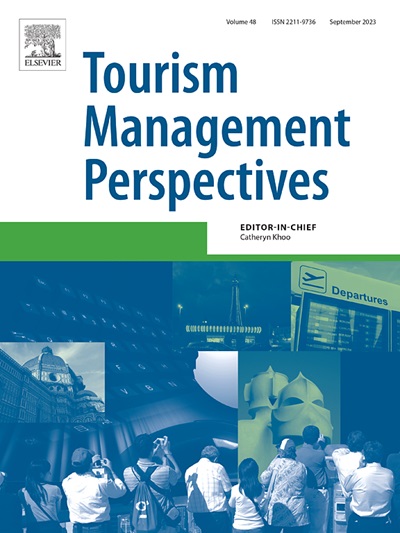Integrating smart technologies and artificial intelligence to build smart tourism destination ecosystems: A model for smart destination management
IF 6.9
2区 管理学
Q1 HOSPITALITY, LEISURE, SPORT & TOURISM
引用次数: 0
Abstract
This study explores how smart technologies and artificial intelligence transform destination management into smart destination management in urban destinations in the United States. Hence, primary and secondary data were collected in ten cities in the United States through qualitative research to provide multiple perspectives. The secondary data consisted of smart technologies and artificial intelligence initiatives published by Destination Management/Marketing Organizations, Departments of Transportation, and Technology Offices across these cities. The authors also interviewed professionals from these organizations, including initiative leaders, project managers, marketing specialists, and data analysts. The study revealed that these destinations have created smart technologies and artificial intelligence initiatives to transform destination management into smart destination management by developing destination ecosystems. The study proposes a smart destination model that guides destinations in adopting smart technologies and artificial intelligence initiatives to build smart destination ecosystems. The results offer conceptual, theoretical, and practical applications for enhancing destination management.
整合智能技术与人工智能构建智慧旅游目的地生态系统:一种智慧目的地管理模式
本研究探讨了智能技术和人工智能如何将目的地管理转变为美国城市目的地的智能目的地管理。因此,通过定性研究收集了美国十个城市的一手和第二手数据,提供了多个视角。二级数据由这些城市的目的地管理/营销组织、交通部门和技术办公室发布的智能技术和人工智能计划组成。作者还采访了来自这些组织的专业人士,包括主动性领导、项目经理、营销专家和数据分析师。研究显示,这些目的地已经创造了智能技术和人工智能举措,通过发展目的地生态系统,将目的地管理转变为智能目的地管理。该研究提出了一个智能目的地模型,指导目的地采用智能技术和人工智能举措,建立智能目的地生态系统。研究结果为加强目的地管理提供了概念、理论和实际应用。
本文章由计算机程序翻译,如有差异,请以英文原文为准。
求助全文
约1分钟内获得全文
求助全文
来源期刊

Tourism Management Perspectives
Multiple-
CiteScore
15.60
自引率
3.40%
发文量
99
审稿时长
59 days
期刊介绍:
Tourism Management Perspectives is an interdisciplinary journal that focuses on the planning and management of travel and tourism. It covers topics such as tourist experiences, their consequences for communities, economies, and environments, the creation of image, the shaping of tourist experiences and perceptions, and the management of tourist organizations and destinations. The journal's editorial board consists of experienced international professionals and it shares the board with Tourism Management. The journal covers socio-cultural, technological, planning, and policy aspects of international, national, and regional tourism, as well as specific management studies. It encourages papers that introduce new research methods and critique existing ones in the context of tourism research. The journal publishes empirical research articles and high-quality review articles on important topics and emerging themes that enhance the theoretical and conceptual understanding of key areas within travel and tourism management.
 求助内容:
求助内容: 应助结果提醒方式:
应助结果提醒方式:


